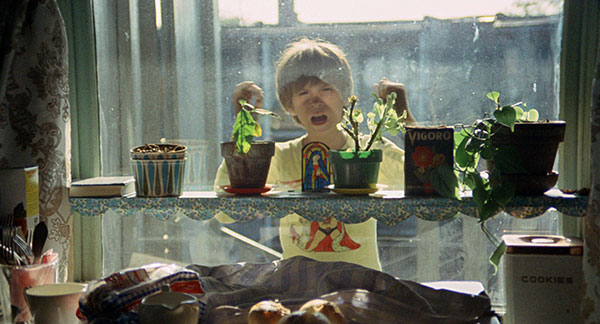Haskell Wexler’s career as a cameraman once saw him filming riots in Guatemala. His feature movie – the vastly overlooked yet hugely influential Medium Cool – should have been a breeze; Newsfront, Tarantino, The Wire and more have borrowed from Wexler. It’s a film about a filmmaker, a TV news cameraman played by Robert Forster (more recently seen in the finale of Breaking Bad), and the film explores the dichotomy of what’s real and what’s unreal, as well as depicting an America in turmoil.
Even the most scrupulous documentary is a manufactured thing: how scenes are framed, what is left in and what’s edited out. Wexler knew this well. The reporter here sees himself as an untouchable godlike figure. In the opening scene, he and his sound man are shooting a car accident on the freeway. As they pack away their equipment one says to the other ‘we should call an ambulance.’ But this is no Nightcrawler. This is a radical movie influenced by cinéma vérité – the plot considerably less interesting than the stuff around it.
Shot in the streets of Chicago in 1968, using lightweight handheld equipment, it reflects a nation on the edge of anarchy. Vietnam war protesters, radical Black Power activists, the disenfranchised poor camped out in the mud (scenes reminiscent of the recent Occupy movement) are filmed for real. Bobby Kennedy and Martin Luther King were both assassinated that year and the 1968 Democratic party convention was due to choose a new presidential hopeful – a hawk or a dove? Outside the convention hall some 10,000 demonstrators clashed with the National Guard and Wexler uses this as part of his film to huge effect.
Although the cameraman’s befriending of a young mother and her fatherless child is the ostensible storyline, what’s far more interesting – and heartbreaking – is to see that child grown into a man in a short interview in the extras submenu. Life has not been kind to this guy, now in his 50s but looking far older, and it shows in his face and toothless grin.
Medium Cool is an impressionistic meditation on a country where civil disturbance and police brutality have become a very real threat. Wexler was one of the first filmmakers to use real news events as they were happening as a backdrop to the story. The jump cuts, the sketchy disjointed plot, the nonprofessional acting are all a world away from slick Hollywood productions of the time, but Medium Cool is a rewarding if challenging watch (the casual sexism notwithstanding).
‘The world is watching’ the protesters shout, only to see the NBC news car leaving the scene kettled by police. If its peer Easy Rider was an exploration of America’s cultural and drug revolution, Medium Cool was that of its political revolution. In this, the internet age, the world is still watching (mainly itself on smartphones), but no one is doing anything.
